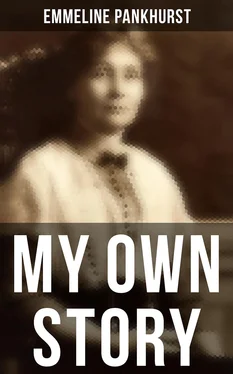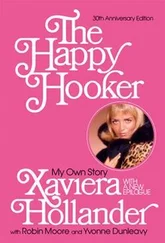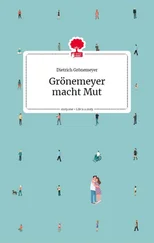1 ...8 9 10 12 13 14 ...18 We did not confine our efforts to heckling Mr. Churchill. Throughout the campaign we kept up the work of questioning Cabinet Ministers at meetings all over England and Scotland. At Sun Hall, Liverpool, addressed by the Prime Minister, nine women in succession asked the important question, and were thrown out of the hall; this in the face of the fact that Sir Campbell-Bannerman was an avowed suffragist. But we were not questioning him as to his private opinions on the suffrage; we were asking him what his Government were willing to do about suffrage. We questioned Mr. Asquith in Sheffield, Mr. Lloyd-George in Altrincham, Cheshire, the Prime Minister again in Glasgow, and we interrupted a great many other meetings as well. Always we were violently thrown out and insulted. Often we were painfully bruised and hurt.
What good did it do? We have often been asked that question, even by the women our actions spurred into an activity they had never before thought themselves capable of. For one thing, our heckling campaign made women's suffrage a matter of news—it had never been that before. Now the newspapers were full of us. For another thing, we woke up the old suffrage associations. During the general election various groups of non-militant suffragists came back to life and organised a gigantic manifesto in favour of action from the Liberal Government. Among others, the manifesto was signed by the Women's Co-operative Guild with nearly 21,000 members; the Women's Liberal Federation, with 76,000 members; the Scottish Women's Liberal Federation, with 15,000 members; the North-of-England Weavers' Association, with 100,000 members; the British Women's Temperance Association, with nearly 110,000 members; and the Independent Labour Party with 20,000 members. Surely it was something to have inspired all this activity.
We decided that the next step must be to carry the fight to London, and Annie Kenney was chosen to be organiser there. With only two pounds, less than ten dollars, in her pocket the intrepid girl set forth on her mission. In about a fortnight I left my official work as registrar in the hands of a deputy and went down to London to see what had been accomplished. To my astonishment I found that Annie, working with my daughter Sylvia, had organised a procession of women and a demonstration to be held on the opening day of Parliament. The confident young things had actually engaged Caxton Hall, Westminster; they had had printed a large number of handbills to announce the meeting, and they were busily engaged in working up the demonstration. Mrs. Drummond, who had joined the Union shortly after the imprisonment of Annie Kenney and Christabel, sent word from Manchester that she was coming to help us. She had to borrow the money for her railroad-fare, but she came, and, as ever before and since, her help was invaluable.
How we worked, distributing handbills, chalking announcements of the meeting on pavements, calling on every person we knew and on a great many more we knew only by name, canvassing from door to door!
At length the opening day of Parliament arrived. On February 19, 1906, occurred the first suffrage procession in London. I think there were between three and four hundred women in that procession, poor working-women from the East End, for the most part, leading the way in which numberless women of every rank were afterward to follow. My eyes were misty with tears as I saw them, standing in line, holding the simple banners which my daughter Sylvia had decorated, waiting for the word of command. Of course our procession attracted a large crowd of intensely amused spectators. The police, however, made no attempt to disperse our ranks, but merely ordered us to furl our banners. There was no reason why we should not have carried banners but the fact that we were women, and therefore could be bullied. So, bannerless, the procession entered Caxton Hall. To my amazement it was filled with women, most of whom I had never seen at any suffrage gathering before.
Our meeting was most enthusiastic, and while Annie Kenney was speaking, to frequent applause, the news came to me that the King's speech (which is not the King's at all, but the formally announced Government programme for the session) had been read, and that there was in it no mention of the women's suffrage question. As Annie took her seat I arose and made this announcement, and I moved a resolution that the meeting should at once proceed to the House of Commons to urge the members to introduce a suffrage measure. The resolution was carried, and we rushed out in a body and hurried toward the Strangers' Entrance. It was pouring rain and bitterly cold, yet no one turned back, even when we learned at the entrance that for the first time in memory the doors of the House of Commons were barred to women. We sent in our cards to members who were personal friends, and some of them came out and urged our admittance. The police, however, were obdurate. They had their orders. The Liberal government, advocates of the people's rights, had given orders that women should no longer set foot in their stronghold.
Pressure from members proved too great, and the government relented to the extent of allowing twenty women at a time to enter the lobby. Through all the rain and cold those hundreds of women waited for hours their turn to enter. Some never got in, and for those of us who did there was small satisfaction. Not a member could be persuaded to take up our cause.
Out of the disappointment and dejection of that experience I yet reaped a richer harvest of happiness than I had ever known before. Those women had followed me to the House of Commons. They had defied the police. They were awake at last. They were prepared to do something that women had never done before—fight for themselves. Women had always fought for men, and for their children. Now they were ready to fight for their own human rights. Our militant movement was established.
Table of Contents
To account for the phenomenal growth of the Women's Social and Political Union after it was established in London, to explain why it made such an instant appeal to women hitherto indifferent, I shall have to point out exactly wherein our society differs from all other suffrage associations. In the first place, our members are absolutely single minded; they concentrate all their forces on one object, political equality with men. No member of the W. S. P. U. divides her attention between suffrage and other social reforms. We hold that both reason and justice dictate that women shall have a share in reforming the evils that afflict society, especially those evils bearing directly on women themselves. Therefore, we demand, before any other legislation whatever, the elementary justice of votes for women.
There is not the slightest doubt that the women of Great Britain would have been enfranchised years ago had all the suffragists adopted this simple principle. They never did, and even to-day many English women refuse to adopt it. They are party members first and suffragists afterward; or they are suffragists part of the time and social theorists the rest of the time. We further differ from other suffrage associations, or from others existing in 1906, in that we clearly perceived the political situation that solidly interposed between us and our enfranchisement.
For seven years we had had a majority in the House of Commons pledged to vote favourably on a suffrage bill. The year before, they had voted favourably on one, yet that bill did not become law. Why? Because even an overwhelming majority of private members are powerless to enact law in the face of a hostile Government of eleven cabinet ministers. The private member of Parliament was once possessed of individual power and responsibility, but Parliamentary usage and a changed conception of statesmanship have gradually lessened the functions of members. At the present time their powers, for all practical purposes, are limited to helping to enact such measures as the Government introduces or, in rare instances, private measures approved by the Government. It is true that the House can revolt, can, by voting a lack of confidence in the Government, force them to resign. But that almost never happens, and it is less likely now than formerly to happen. Figureheads don't revolt.
Читать дальше












